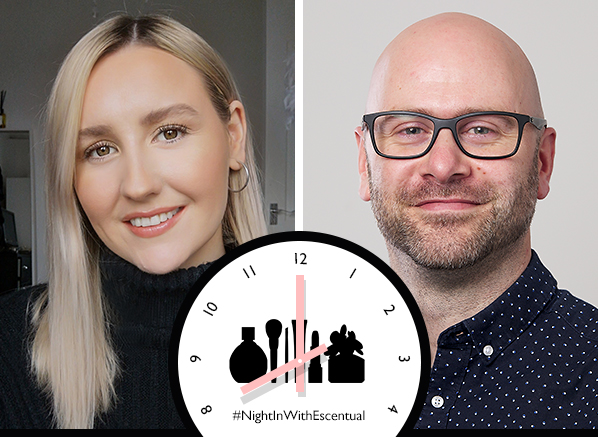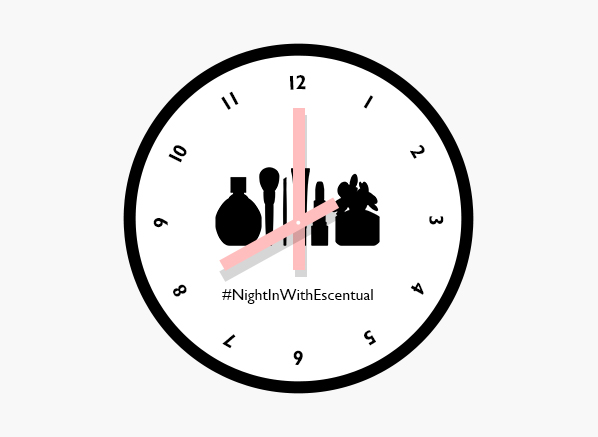

Pigmentation is a hot topic right now. More and more people are starting to take an interest in the causes, as the effects can be physical and psychological.
If you, or, you know anyone who suffers from brown spots, melasma, or, is prone to pigmentation, this edit is an essential read. For extra insight, I invited Dylan, Eucerin’s Medical Manager, to have a chat on #NightInWithEscentual all about this age spots, liver spots and more, and his knowledge was too good not to share. Together we highlight the importance of prevention, and what skincare can do to help.
Read on to find out more, or, you can also watch the full video: part 1 and part 2.
Our Topic: The Truth About Pigmentation
1. Hyperpigmentation is the correct term for marks on the skin.
This happens when certain pigmentation cells (melanocytes) in your skin are releasing more ‘colour’ (melanin) than they should. The reason behind this can be genetic, or UV rays, High Energy Visible Light damage, hormones and ageing are the few of the main reasons why you have an uneven, patchy skin tone (hyperpigmentation).
2. Hyperpigmentation won’t go on its own.
You need to look for skincare products that are clinically proven to target epidermal hyperpigmentation (pigmentation in the top cells in the skin). By this, I mean to stop the pigmentation cells (melanocytes) releasing colour. But most importantly, you need to commit to the routine twice a day to see results. Eucerin have proved that when you use their Anti-Pigment routine every morning and evening, you will see results in only two weeks.
With all topical skincare, to see continued results, you have to continue to use the products, as when you stop, so will your protection against hyperpigmentation. For deep pigmentation (dermal pigmentation), you need to visit a dermatologist.
3. Post-inflammatory pigmentation (PIH) is something to be aware of.
Any trauma to the skin can cause post-inflammatory pigmentation. Insect bites; popping spots; burns; incorrect use of peels, and eczema are some of the main causes.
4. If you have active acne or active eczema, you’re more prone to post-inflammatory pigmentation.
It’s important to balance your skincare routine with products that will treat both the concern and the prevention of hyperpigmentation. Try using concern-lead products at night, and pigmentation preventatives in the day, like the Anti-Pigment Serum or Pigment Control SPF 50+.
5. The darker your skin, the more active your pigment cells are.
If you have dark skin, and have acne or eczema, you’re more prone to hyperpigmentation. The solution? Preventative skincare like Anti-Pigment and the Pigment Control SPF 50+.
6. High Energy Visible Light (HEVL) and UV rays make hyperpigmentation darker and last longer.
The solution? A good routine and sun protection that protects against HEVL and UV. Pigment Control SPF 50+ provides broad-spectrum protection against UVA, UVB and protection against HEVL.
7. Over 50% of pregnant women will develop melasma.
You need to use sun protection all year round to protect against UV rays (hyperpigmentation’s main trigger), as pregnancy mask can have a psychological impact, and they tend not to fade post-pregnancy.
8. 25% of women on the contraceptive pill will develop hyperpigmentation.
Again sun-protection is imperative. The Oil Control Gel-Gream is a great place to start; it protects against UV, HEVL and its non-oily texture also creates a smooth base for makeup too.
9. 90% of people over the age of 55 have age spots.
As you age, your pigment cells decrease, but they get fatter in size – this is why you develop brown, patchy marks also known as liver or age spots on your face and hands.
10. Eucerin’s Anti-Pigment range is clinically proven to target hyperpigmentation
The science behind Eucerin’s Anti-Pigment range is completely exclusive. They use a patented ingredient called thiamidol that took over 50,000 ingredient tests and 10 years to develop. Thiamidol is the first anti-pigment ingredient tested on the human skin enzyme to block pigment forming. Most other products have been tested on mushrooms, as the same enzyme makes them go brown too.
Watch The Full Conversation:
View this post on Instagram
Over To You!
What fact surprised you the most? Join the conversation on Instagram, Facebook and Twitter with #NightInWithEscentual.





